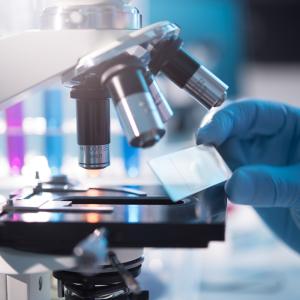
Photo: Westend61/Getty
After testing positive for BRCA, a genetic mutation associated with breast cancer, Maureen Boesen chose to have a double mastectomy to reduce her risk of developing breast cancer. Then, after having children, she contemplated a complete hysterectomy to reduce her risk for ovarian cancer, which is also linked to the BRCA gene. However, after being screened for BRCA a second time, she was shocked to learn that she was, in fact, BRCA negative all along.
Deborah M. Axelrod, MD, chief of clinical breast surgery at NYU Langone’s Perlmutter Cancer Center, appeared with Maureen and her sisters on TODAY to explain the likelihood of a false-positive BRCA test.
“Maureen’s initial BRCA test was done a long time ago, when she was a young girl, as part of a research protocol,” Dr. Axelrod says. “That type of screening was probably not as sophisticated and comprehensive as a screening done for clinical purposes. In addition, BRCA screening has advanced significantly from 20 years ago. The likelihood of a false positive today is extremely rare.”
Dr. Axelrod encourages people receiving BRCA gene testing to have it performed by a reputable lab and in consultation with a genetic expert. She explains that commercially available genetic tests are fine for ancestry, “but they are not reliable enough for more intimate screening for BRCA.”
View the entire story from TODAY.

